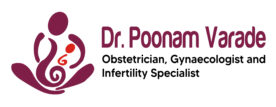PCOS Counselling

What is polycystic ovary syndrome (PCOS)?
Polycystic ovary syndrome (or polycystic ovarian syndrome – PCOS) is a complex hormonal condition. ‘Polycystic’ literally translates as ‘many cysts’. This refers to the many partially formed follicles on the ovaries, which each contain an egg. These rarely grow to maturity or produce eggs that can be fertilised.
Women with PCOS commonly have high levels of insulin that don’t work effectively, or male hormones known as ‘androgens’, or both. The cause is not fully understood, however family history and genetics, hormones and lifestyle play a role. Insulin resistance is present in up to four out of five women with PCOS.
Women who have a mother, aunt or sister with PCOS are 50 per cent more likely to develop PCOS. The condition is also more common in women of Asian, Aboriginal and Torres Strait Islander and African backgrounds.
PCOS is relatively common, especially in infertile women. It affects 8 to 13 per cent of women of reproductive age (between late adolescence and menopause). Almost 70 per cent of these cases remain undiagnosed.
Up to a third of women may have polycystic ovaries seen on an ultrasound, but they don’t all have PCOS. To be diagnosed with PCOS, women need to have two out of three of the following:
- irregular or absent periods
- acne, excess facial or body hair growth, scalp hair loss or high levels of androgens (testosterone and similar hormones) in the blood.
- polycystic ovaries (many small cysts on the ovaries) visible on an ultrasound.
